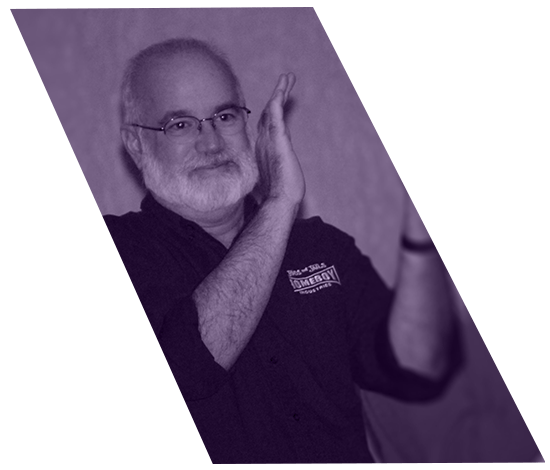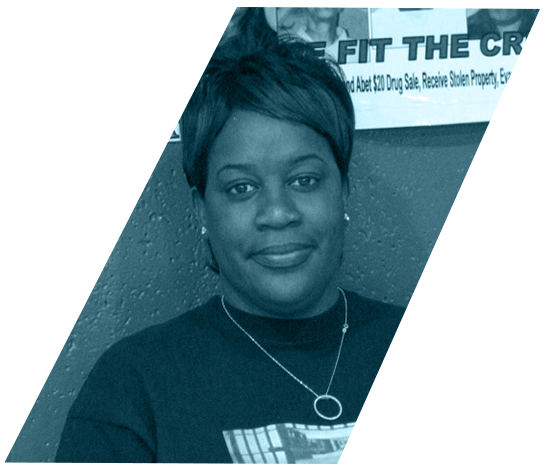
When Will the Punishment End?
A 60-minute documentary by Dr. Marta López-Garza about formerly
incarcerated women and the issues they face upon returning to society.

ABOUT
In the process of making this film, we discovered that not only are the formerly incarcerated feared and discriminated against, but that they are also barred, through legal and authoritative means, from the opportunities and services they need. As Stormie, one of the women featured in the documentary stated, “We don’t want special treatment. We just want to be treated equally.”
The women we met have served their time in prison, they’ve paid their debt, but they face intolerance and legal barriers. The women long for freedom from the stigma of their status as formerly incarcerated. They ask “When will the punishment end?”
We hope that viewing this modest endeavor will touch you and that you, in turn, will share this with others. Send it far and wide. Help us spread the word that formerly incarcerated women need and deserve the opportunity to rebuild their lives.
At the crux of this documentary are two simple questions:
- What are the factors that support women’s efforts to rebuild their lives?
- What are the barriers to their efforts?
Watch the Movie
Watch the Trailer
Organizations

A New Way of Life Re-Entry Project
A New Way of Life has provided a chance at a new start for many women.
Susan Burton understands the experience of coming out of prison and finding little opportunity to rebuild one’s life. Hence, her commitment to help other women facing the hardships she herself encountered. With a vision of a safe haven for women coming out of prison and their children, Ms. Burton founded A New Way of Life Reentry Project located in the Watts neighborhood of South Los Angeles, which offers housing to an average of 40 women and their children, along with providing legal services, job training, and 12-step meetings and workshops (e.g., meditation and acupuncture). Susan Burton, recipient of numerous awards—including CNN HERO and the 2012 Purpose Award—has, with her extraordinary vision, created a model for others to follow. For more information, visit: https://anewwayoflife.org/
"When do I get to participate wholly in my community and in my life?
When does the punishment end?"
Susan Burton,
Executive Director

Homeboy Industries
Homeboy Industries/Homegirl Café is considered this country’s largest gang intervention program.
Established in 1988 as “Jobs for a Future,” a Proyecto Pastoral program at Dolores Mission (east of downtown Los Angeles) under the direction of Father Gregory Boyle, Homeboy Industries has since grown into a formidable nonprofit economic development enterprise. Homeboy Industries hires, at any given time, 250 to 300 formerly incarcerated and at-risk youth through its various businesses: Homeboy Bakery, Homegirl Café & Catering, Homeboy Maintenance, Homeboy Merchandise, Homeboy Press and Homeboy Silkscreen & Embroidery. In addition, Homeboy/Girl runs a diner at Los Angeles City Hall Building, a stall at LAX and numerous farmer’s market booths throughout the Los Angeles area. Select Homegirl/boy products are also sold in various grocery retailers, such as Ralphs and Food 4 Less. Services for the youth provided at Homeboy Industries include tattoo removal, job training, employment, re-entry, mental health and legal services along with numerous classes, workshops and training sessions. For more information, visit: https://homeboyindustries.org/
"You stand with the folks on the margins because you hope
that the margins themselves have been erased…
so that the city and the community and employers will say,
‘Oh, alright. Ok, I will hire somebody. I will look beyond
her tattoos and bring her on’…You hope for that kind of
understanding and compassion on the part of the larger community."
Father Gregory Boyle,
Executive Director

Time for Change Foundation
Time for Change Foundation has helped hundreds of women in the Inland Empire find shelter and employment since 2002
Located in San Bernardino, 1 hour east of Los Angeles, Time for Change Foundation provides housing, substance abuse treatment, employment opportunities, health care, and counseling to women who have been released from prison. Often these women have histories of drug and alcohol addictions but have little or no access to resources or services they need to recover and reconnect to the larger society. The Founder and Director of Time for Change Foundation is the energetic and vibrant Kim Carter. Ms. Carter has helped hundreds of women in the Inland Empire find shelter and employment since 2002. She is the recipient of a number of awards, has presented at many conferences, and is also the lead author of the research-based publication Invisible Bars: Barriers to Women’s Health and Well Being During and After Incarceration, a major contribution to the field. For more information, visit: https://www.timeforchangefoundation.org/
"…many women [with] drug convictions are banned for life
from things such as welfare, CalWORKs benefits, low-income housing
and federal subsidies such as FAFSA, for college loans.
These are the women who succumbed to a medical
condition called addiction…and for life they are being
punished for having an illness."
Kim Carter,
Executive Director

Harbour Area Halfway Houses
Harbour Area Halfway Houses have now been acquired by A New Way of Life Foundation
A New Way of Life acquired Hoffman House and two properties referred to collectively as Holland House in a 2018 merger with Harbour Area Halfway Houses, which was founded in 1971. This housing complex consists of: Hoffman House which serves as a humane option to prison for women serving their final months; Holland House, a transitional home for women within a structured yet democratically-run independent living space; and Houston House, a “community-based facility” for first-time convicted women who hold jobs and maintain relations with family members. For more information, visit: https://anewwayoflife.org/
"When you treat people with dignity and respect ...
you get the results of that…When you treat people abusively, when you
power over and perpetuate against them...you get the results of that.
We are all responsible for each other. There’s no other way to do it."
Monica Stel
Former Executive Director
Publications
Journal of Progressive Human ServicesMarta López-Garza:
This article concerns women who have returned from prison, attempting to rebuild their lives. A number of the women in this writing have become activists on their own behalf and on behalf of other formerly incarcerated individuals as well as those still in prison. They are working across the country to change minds and change regressive policies.
I enjoyed writing this piece because, as noted in the title of the journal, its readership is primarily progressive service providers. Therefore the editors of the journal were interested in the women's stories, hearing from the women themselves, and less with the academic literature. I loved this opportunity to include many passages by the women, to share their voices. Download.
"White" Washing American Education: New Cultural Wars in Ethnic Studies (eds.), Sandoval, Radcliff, Buenavista, MarinVelázquez-Vargas, López-Garza, Pardo:
This chapter in the New Cultural Wars anthology is a collaborative work with two colleagues. The point of this piece is that while our research areas differ from one another, our methodological approaches are similar in that we ground ourselves in a community-based field research approach. Our burning question is if indeed Ethnic Studies is about a "different way of thinking" from the dominant academic precepts, how does this inform the manner in which we collect data and interpret what we document?
Research Justice: Methodologies for Social Change, (ed.), Andrew JolivétteMarta López-Garza:
This chapter partners with my documentary, "When Will the Punishment End?" I present my research on formerly incarcerated women, following their journey from the moment of their release, on to their reunion with family and children, as well as their search for employment and housing. In this piece, I present the multiple systemic barriers to the women's reentry back into society.
Contact
For comments or questions please contact: marta.lopez-garza@csun.edu
© 2021. Marta López-Garza








